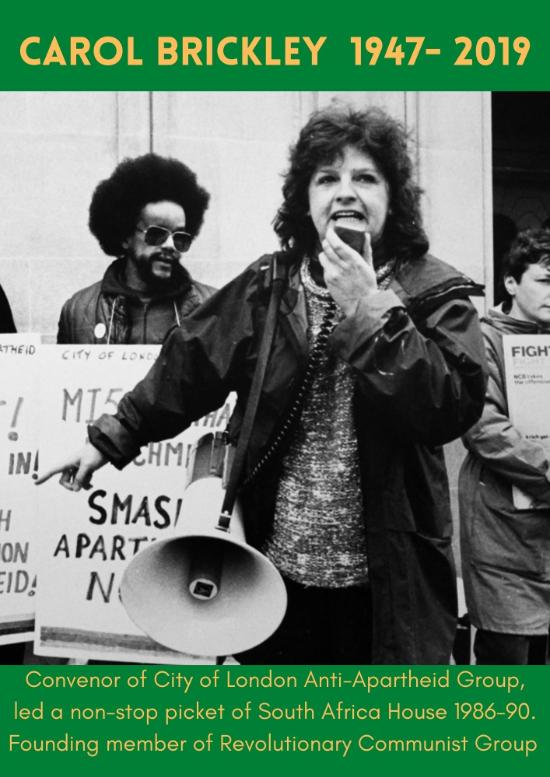Clara Zetkin 1857-1933
The German communist Clara Zetkin was one of the great torch bearers for the emancipation of the entire working class and continues to inspire revolutionaries everywhere.
Zetkin was educated at a teaching college for women in Germany and began her political activism in the Social Democratic Party (SDP). She was forced into exile in Switzerland and France in 1880, following the ban on the SDP by the German government and criminalisation of communist idea.
On her return some ten years later, she forged a firm political alliance with the German communist Rosa Luxemburg. Zetkin helped to develop the socialist women’s movement in Germany and was editor of the SDP women’s newspaper for 25 years. In 1910, she was the main proponent of marking International Working Women’s Day as an annual event.
Zetkin understood that women’s liberation is impossible under capitalism. She opposed bourgeois feminism, seeing it as a tool to divide the interests of the working class by focusing on the property and inheritance ‘rights’ of middle class women rather than fighting for the emancipation of women as central to the emancipation of the entire working class.
‘The working women, who aspire to social equality, expect nothing for their emancipation from the bourgeois women’s movement, which allegedly fights for the rights of women. That edifice is built on sand and has no real basis. Working women are absolutely convinced that the question of the emancipation of women is not an isolated question which exists in itself, but part of the great social question. They realise perfectly clear that this question can never be solved in contemporary society, but only after a complete social transformation.’
She was active at a time when significant numbers of women were brought into the workforce. She argued for the need to organise these women to fight to better their conditions and the conditions of the entire working class. She saw the importance of developing these working class women into cadre who could lead these struggles and intervene in the socialist movement.
During the First World War, while so called socialists and trade unionists throughout Europe defended their capitalist governments, she took the principled communist position.
‘Who profits from this war? Only a tiny minority in each nation: The manufacturers of rifles and cannons, of armour-plate and torpedo boats, the shipyard owners and the suppliers of the armed forces’ needs. In the interests of their profits, they have fanned the hatred among the people, thus contributing to the outbreak of the war. The workers have nothing to gain from this war, but they stand to lose everything that is dear to them.’
She split from the SPD because of its pro-war stance and joined the newly formed German Communist Party, becoming a member of its executive committee and representing the party in the Reichstag until Hitler and the Nazi Party took power. She analysed the rise of fascism as a symptom of the crisis facing that capitalism symptom:
‘Specifically, we view fascism as an expression of the decay and disintegration of the capitalist economy and as a symptom of the bourgeois state’s dissolution. We can combat fascism only if we grasp that it rouses and sweeps along broad social masses who have lost the earlier security of their existence and with it, often, their belief in social order. Fascism is rooted, indeed, in the dissolution of the capitalist economy and the bourgeois state.’
Addressing the Comintern in 1923, she argued for the formation of proletarian self-defence units and for the creation of a united front against fascism.
She was once again forced into exile in 1933, this time travelling to the Soviet Union, where she died shortly afterwards aged 75. The funeral was attended by leading communists from all over Europe, including Joseph Stalin and Lenin’s widow Nadezhda Krupskaya. Her analysis remains apt for our struggles today and her words are our rallying cry:
‘Capitalism is doomed. Our struggle and our tactics must be directed towards the great goal, to organise the powers of the workers; to inspire them for the struggle and to develop it, so that when capitalism calls again for war the working class of the world can answer with a call for world revolution.’





